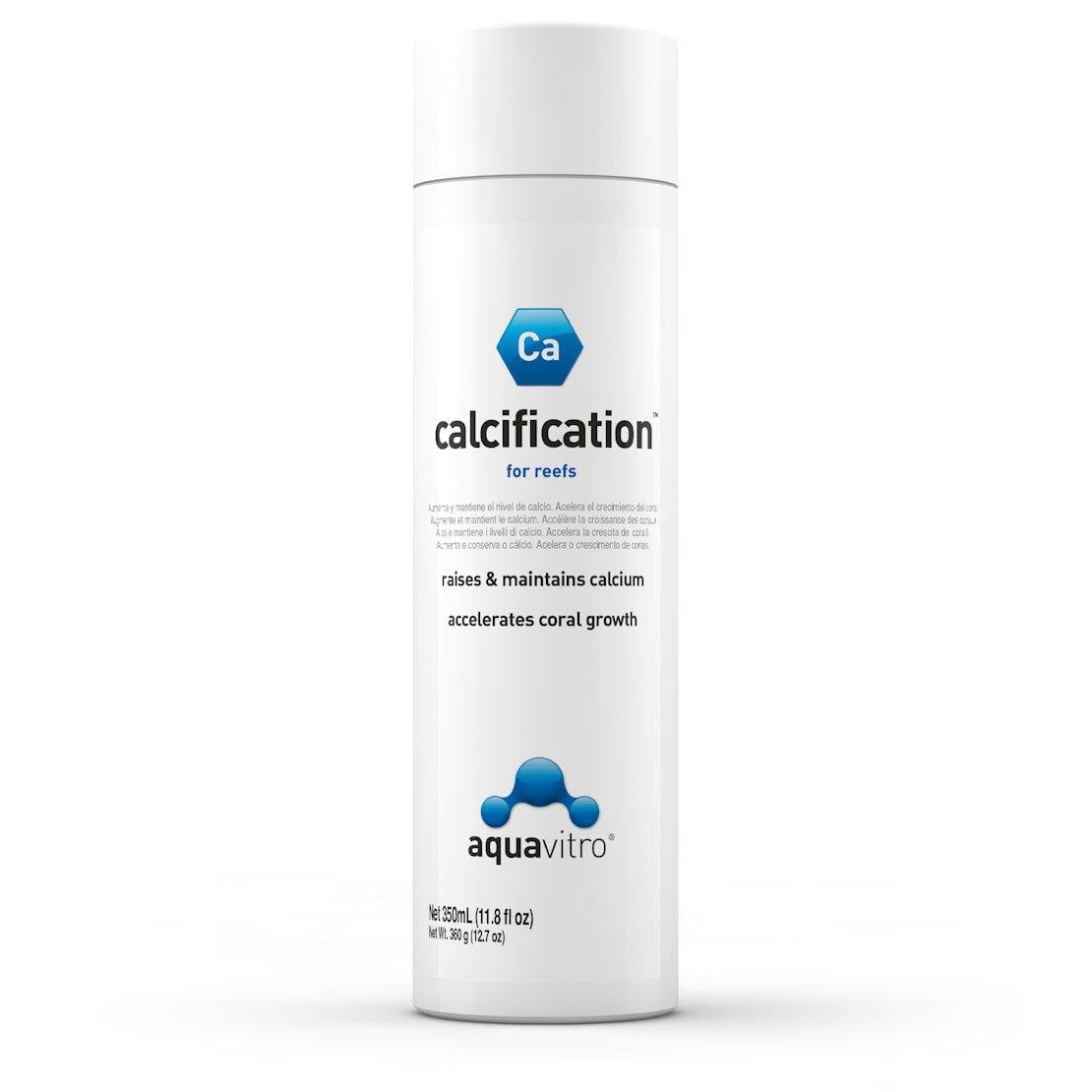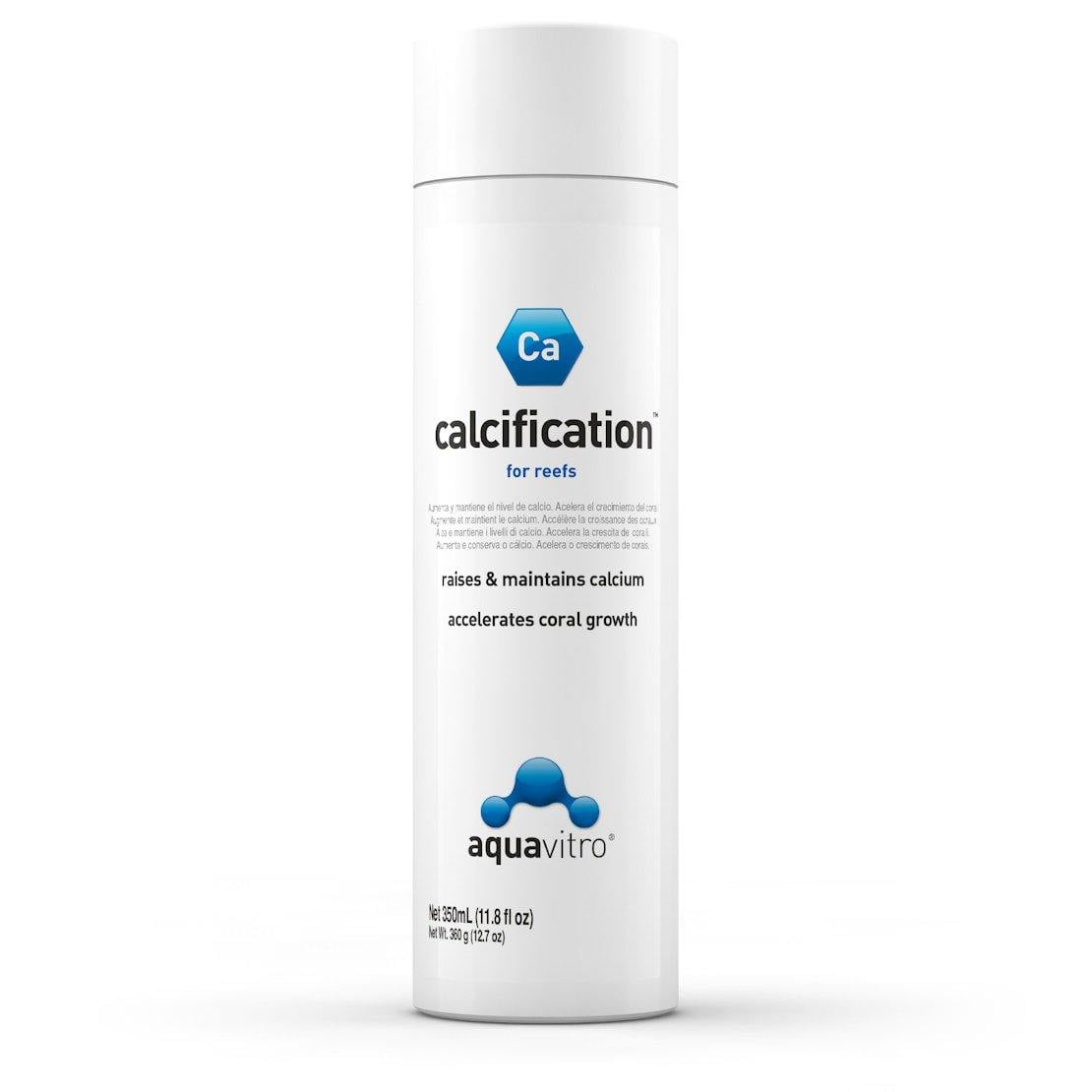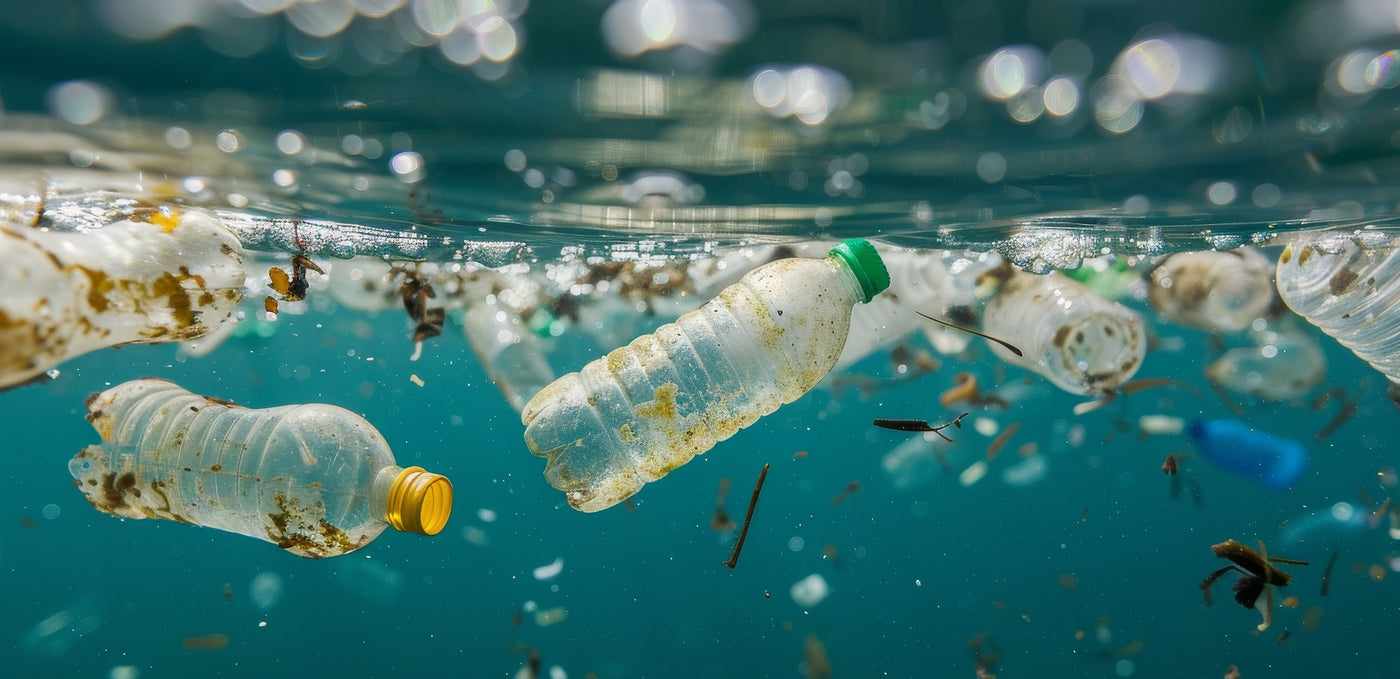Aquavitro Calcification
Aquavitro Calcification - 350ml is backordered and will ship once an order is placed. Contact us for delivery timeframes.
Delivery and Shipping
Delivery and Shipping
Shipping Cost Guide:
Courier: $10-$50 Depending On Distance/Item
Saturday Delivery: $8.50
Rural Delivery Fee: $8.50
Shipping Available NZ Wide.
Returns Policy
Returns Policy
We accept hassle free returns within 5 days of purchase date, with the purchase reciept and in the same condition it was brought in. Livestock, Clearance Items, Aquariums or Special Order items are not returnable. All returns are at EMA's Descretion.
EMA's Promise.
Qualified, Honest Advice Using Techniques & Protocols that we use ourselves.
Description
Description
Ionic calcium is readily available, while the gluconate-complexed calcium confers several benefits. The uncharged calcium in calcification? is readily absorbed with less physiological work than is required for the absorption of ionic calcium. Using calcification?, it is not necessary to maintain the excessively high concentrations of calcium (about 450 mg/L or more) often recommended by others. In fact, excellent growth of corals and coraline algae is achieved with total calcium concentrations as low as 380 mg/L. Used up to four times recommended maintenance dose, the gluconate polymer will not accumulate or encourage the growth of undesirable algae. The polymer itself is beneficial as a food source not only to the corals and other invertebrates, but also to denitrifying bacteria, actually promoting the natural anaerobic denitrification process in live rock and other substrate. Furthermore, the use of this gluconate polymer allows calcium, strontium, and magnesium to be utilized more readily than they would otherwise and also helps to stabilize them in solution without depleting alkalinity.
Some prefer not to use complexed calcium because of concern about adding organics to the aquarium. This is not a valid concern. The amount of organics added with complexed calcium is insignificantly small when compared to the organics released by most reef creatures, even in a no feed, no nutrients approach. Since complexed calcium products employ lactate or gluconate, the naive misconception that these products contain sugars has arisen. While these components are related to sugars, they are oxidized aldehydes and do not react or behave as sugars. Polygluconate contains no nitrogen or phosphorous, thus it is biologically impossible for it to lead to algae growth in a properly maintained reef system.
Unlike competing products that require multi-day interval dosing when combined with carbonate supplements, calcification? can be dosed daily and within minutes of our eight.four? as well as the entire aquavitro reef line.
Payment & Security
We offer a number of different payment methods, including Credit Card, Afterpay, Q Card, Pay at Collection, Bank Transfer and POLi.
Credit card payments are processed securely using the highest possible security protocols.









